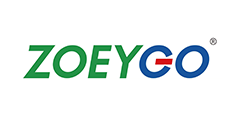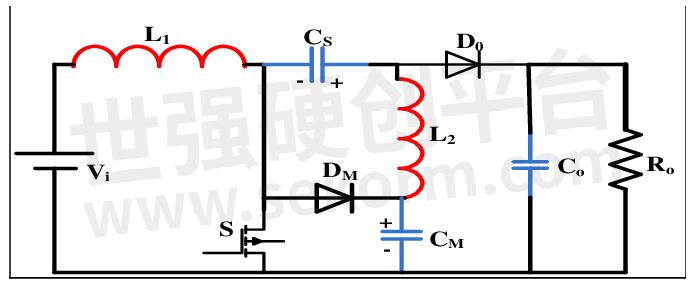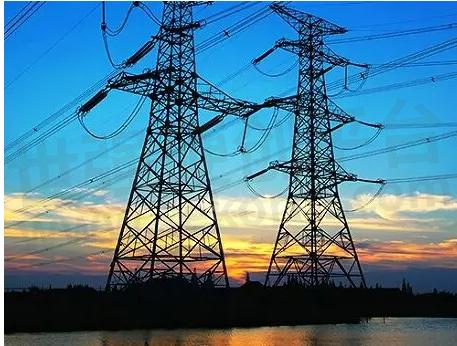The Features, Applications, and Advantages of Bidirectional DC-DC Converters




The rapid growth of renewable energy sources and the increasing demand for efficient energy management has led to the development of advanced power conversion systems. Among them, Bidirectional DC-DC Converters have emerged as a promising solution for effective power conversion and energy management. This article explores the features, applications, and advantages of bidirectional DC-DC converters.

Key Features of Bidirectional DC-DC Converters:
Bidirectional DC-DC converters are capable of transferring power bidirectionally between two energy sources or energy storage systems. They can convert energy from a high-voltage source to a low-voltage source or vice versa. These converters efficiently manage energy flow in both directions, enabling energy storage, grid integration, and seamless transition between power sources.
Applications of Bidirectional DC-DC Converters:
1. Renewable Energy Integration
Bidirectional DC-DC converters play a vital role in integrating renewable energy sources like solar panels and wind turbines with the power grid. They efficiently convert the variable DC voltage generated by these sources into a stable voltage suitable for grid connection. Additionally, these converters enable the bidirectional flow of energy, facilitating energy storage in batteries or other storage systems.
2. Electric Vehicle Charging
Bidirectional DC-DC converters are essential in electric vehicle (EV) charging infrastructure. They allow bidirectional power flow between the EV battery and the grid, enabling vehicle-to-grid (V2G) and vehicle-to-home (V2H) capabilities. These converters facilitate the use of EV batteries for energy storage during peak demand, thereby balancing the grid and reducing strain on power generation plants.
3. Energy Storage Systems
Bidirectional DC-DC converters are widely used in energy storage systems such as battery banks and supercapacitors. They efficiently manage the charge and discharge process, ensuring optimal utilization of stored energy. These converters also allow the integration of various types of energy storage technologies, enhancing reliability and flexibility in energy management.
Advantages of Bidirectional DC-DC Converters:
1. High Efficiency
Bidirectional DC-DC converters exhibit high efficiency in both directions of power flow, minimizing energy losses during conversion. This results in reduced energy costs and improved overall system performance.

2. Flexible Operation
These converters provide flexibility in power source selection, facilitating a seamless transition between different energy sources. They also enable the usage of surplus energy generated by renewable sources for charging energy storage systems or feeding back into the grid.
3. Enhanced Stability and Reliability
Bidirectional DC-DC converters contribute to grid stability by ensuring a stable and reliable power supply. They enable the integration of distributed energy resources, enhance fault tolerance, and reduce the impact of intermittent renewable energy sources on the grid.
Conclusion:
Bidirectional DC-DC converters have emerged as a highly efficient and versatile solution for power conversion and energy management. Their ability to transfer power bidirectionally enables seamless integration of renewable energy sources, facilitates EV charging infrastructure, and optimizes energy storage systems. With their numerous benefits, bidirectional DC-DC converters are expected to play a crucial role in the future of sustainable energy systems.
- |
- +1 赞 0
- 收藏
- 评论 0
本文由Vicky转载自ZOEYGO News,原文标题为:Bidirectional DC-DC Converter: An Efficient Solution for Power Conversion and Energy Management,本站所有转载文章系出于传递更多信息之目的,且明确注明来源,不希望被转载的媒体或个人可与我们联系,我们将立即进行删除处理。
相关推荐
Bidirectional DC DC Converter: Principles, Topologies, and Applications
A bidirectional DC-DC converter is widely used in various applications, including electric vehicles, renewable energy systems, and battery energy storage systems. This article will explore the principles, topologies, and applications of bidirectional DC-DC converters.
Bidirectional DC DC Converter: Principles and Applications
A bidirectional DC-DC converter is a power converter that can convert DC voltage from one level to another level, in both directions. This type of converter is used in applications such as electric vehicles, renewable energy systems, and energy storage systems, where there is a need for bidirectional power flow. In this article, we will discuss the principles of bidirectional DC-DC converters and their applications.
Bidirectional DC-DC Converter: A Comprehensive Guide
A bidirectional DC-DC converter is a device that allows for power to be transferred between two DC power sources, such as a battery and a power grid, in either direction. This type of converter has become increasingly popular in recent years, particularly in the automotive and renewable energy industries.
The Advantages, Challenges and Potential Improvements of Bidirectional DC-DC Converters
Bidirectional DC-DC converters play a crucial role in various applications, providing efficient power transfer between multiple DC voltage sources. This article aims to explore the efficiency and performance of bidirectional DC-DC converters, shedding light on their advantages, challenges, and potential improvements.
Design and Analysis of a Bidirectional DC-DC Converter for Energy Storage Systems
One of the key components of an ESS is the bidirectional DC-DC converter, which is responsible for converting the DC voltage of the battery to the appropriate voltage level for the load or grid, and vice versa. The article discusses the design and analysis of a bidirectional DC-DC converter for energy storage systems.
Bidirectional DC DC Converter: A Solution for Efficient Power Conversion in Renewable Energy Systems
As the world is moving towards sustainable energy sources, renewable energy systems are gaining immense popularity. However, the energy produced by these systems is often variable and unpredictable, making it challenging to integrate them into the existing power grids. To overcome this challenge, a bidirectional DC-DC converter has emerged as a promising solution. This article discusses the bidirectional DC-DC converter and its role in efficient power conversion in renewable energy systems.
Bidirectional DC-DC Converter: A Solution for Efficient Energy Conversion
Bidirectional DC-DC converters have revolutionized the field of energy conversion, enabling efficient energy utilization, storage, and integration. Their applications in renewable energy systems, electric vehicles, and microgrids are essential for the widespread adoption of sustainable energy solutions.
Bidirectional DC-DC Converter: A Two-Way Power Conversion Solution
The bidirectional DC-DC converter has several advantages over traditional converters. It can operate in both buck and boost modes, which enables it to transfer power in both directions. It also has a high efficiency, which reduces the amount of power lost during the conversion process. Additionally, the bidirectional DC-DC converter can regulate the output voltage and current, which ensures that the load receives a stable power supply.
Bidirectional DC-DC Converter: A Guide for Power Conversion in Both Directions
The bidirectional DC-DC converter is an essential power electronic device used in various applications. It provides efficient power conversion in both directions, and the different types of converters offer flexibility in design. The advancements in technology have made these converters more efficient, reliable, and cost-effective, and they will continue to play a vital role in the future of power electronics.
Bidirectional DC-DC Converter: An Innovative Solution for Efficient Power Conversion
With the increasing demand for energy efficiency and the integration of renewable energy sources into the power grid, bidirectional DC-DC converters have emerged as an innovative solution for efficient power conversion. These converters play a crucial role in a wide range of applications.
Design and Analysis of a Bidirectional DC-DC Converter for Power Electronics Applications
A DC-DC converter is an electronic circuit that converts a DC voltage level from one level to another. In this paper, we will discuss the design and analysis of a bidirectional DC-DC converter that can be used in power electronics applications.
Bidirectional DC-DC Converter: A Versatile Power Conversion Solution
In recent years, renewable energy sources such as solar panels and wind turbines have become increasingly popular due to the growing concern over climate change and the depletion of fossil fuels. However, these sources of energy are often intermittent and require energy storage systems to ensure a reliable and constant supply of electricity. Bidirectional DC-DC converters have emerged as a versatile and efficient solution for energy storage and power conversion in renewable energy systems.
Bidirectional DC-DC Converter: Efficient Power Conversion in Both Directions
This article will delve into the working principle and advantages of the bidirectional DC-DC converter, highlighting its role in achieving efficient power conversion.
Bidirectional DC-DC Converter: An Efficient Solution for Power Conversion
The bidirectional DC-DC converter has emerged as an efficient solution for power conversion due to its ability to transfer power bidirectionally between two DC voltage sources. This article aims to explore the working principle, advantages, and applications of bidirectional DC-DC converters.
Bidirectional DC DC Converter: A Two-Way Power Transfer Solution
A bidirectional DC-DC converter is a power transfer solution that allows for two-way power conversion between two different voltage levels. This type of converter is commonly used in applications where power needs to be transferred bidirectionally, such as in electric vehicles, renewable energy systems, and battery charging systems.
电子商城
服务
可定制电感最大电流100A,尺寸最小7 x 7 x 3.0mm到最大35 x 34 x 15.5 mm,工作频率100KHZ ~ 2MHZ,感值范围:0.15 ~ 100uh;支持大功率电感,扁平线电感,大电流电感,高频电感,汽车电感器,车规电感,一体成型电感等定制。
最小起订量: 5000 提交需求>























































































































































































登录 | 立即注册
提交评论